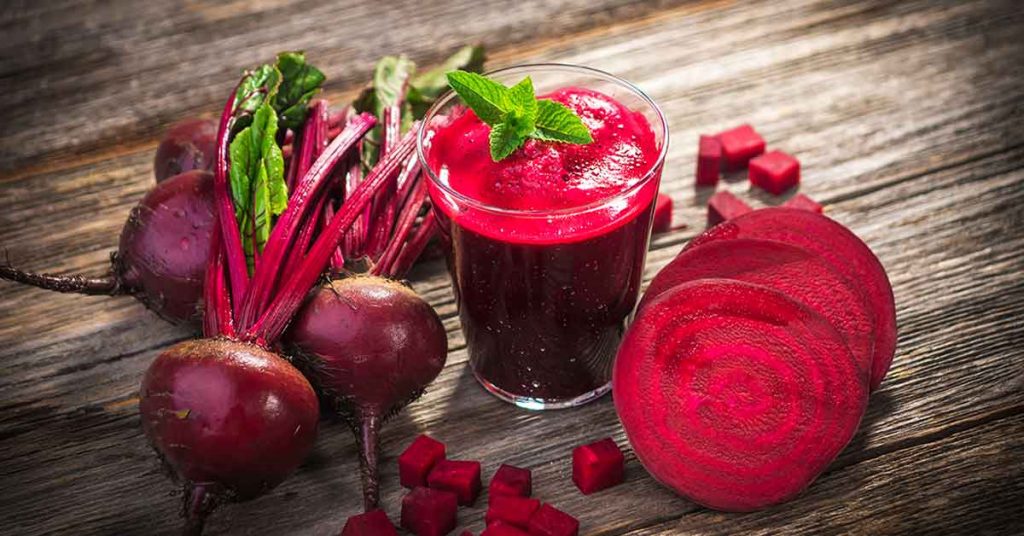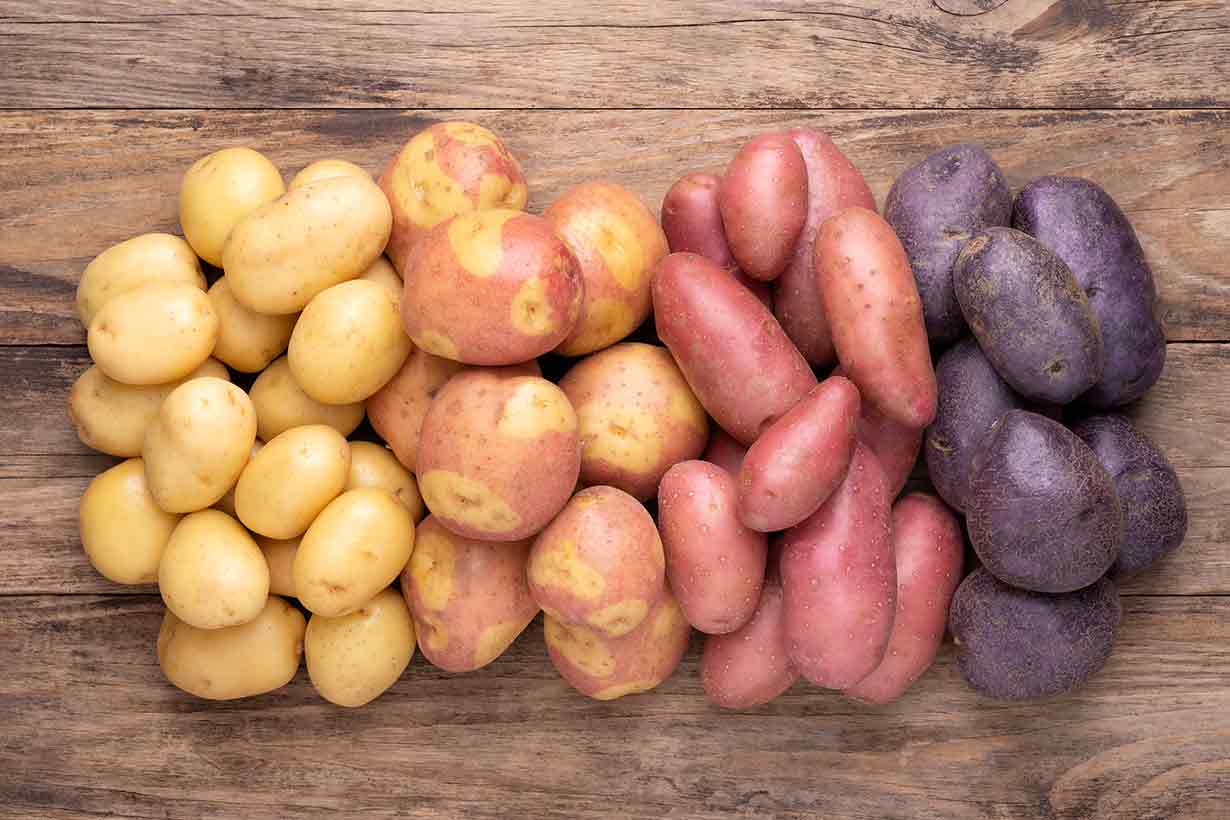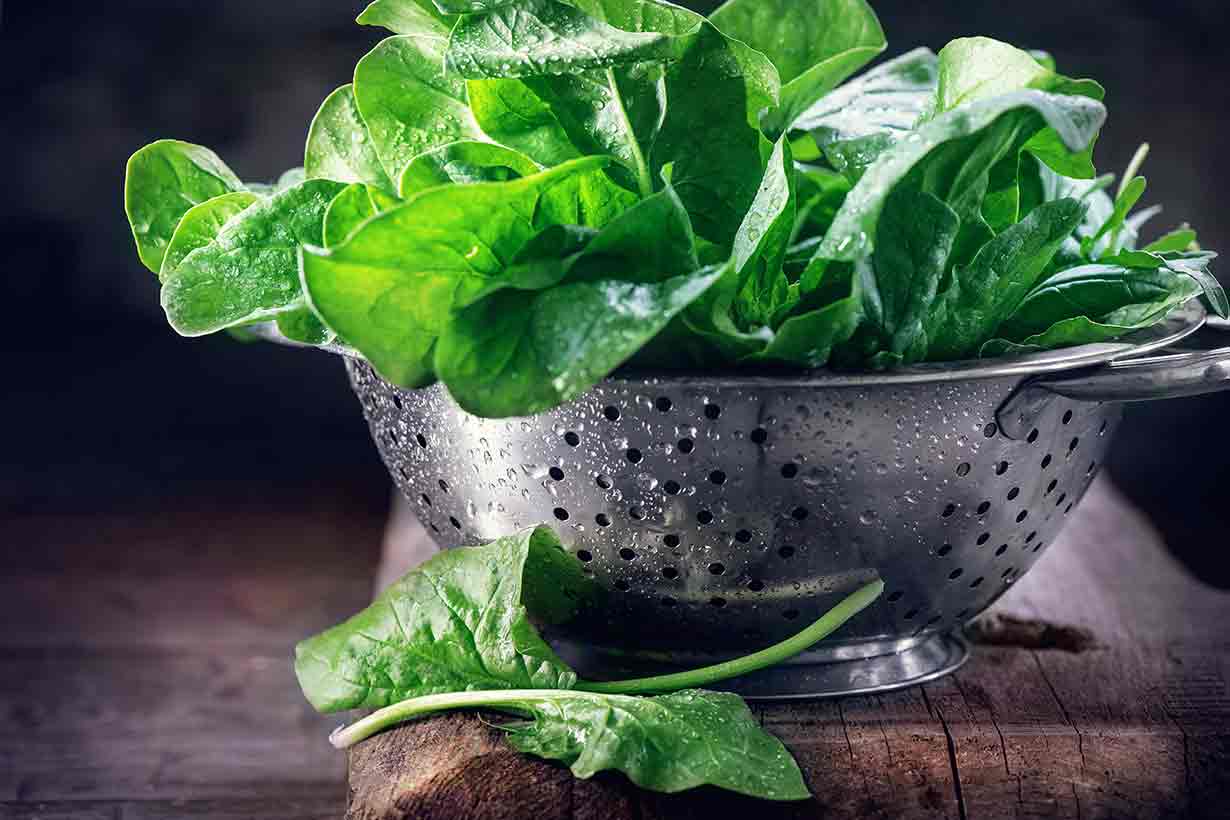Beets, also known as beetroot, are a type of root vegetable grown around the world.
Due to the interesting compounds they contain, beets are thought to offer several potential health benefits.
In this article, we examine these potential benefits as well as their full nutritional profile.
What Do Beets Offer?
- Nitrate: Beets are an excellent source of nitrate, a compound that converts to nitric oxide in the body, potentially offering benefits for blood pressure and exercise performance.
- Essential micronutrients: Beets contain numerous essential vitamins and minerals, and they are particularly high in folate.
- Betalains: The betalain phytonutrients in beets may offer further benefits, but more research is needed.
Table of contents
Potential Benefits of Beets

Beets contain several interesting compounds, making them one of the most well-researched vegetables.
Here is an overview of recent scientific research on the potential health benefits of beets.
Beets Are High In Nitrate
Beets are one of the most significant dietary sources of nitrate. Based on samples, a 100-gram serving of beets has been shown to provide approximately 495 mg of nitrate (1).
100 grams of beets is just slightly over a half-cup (85g) serving.
When we consume and digest nitrate, oral bacteria and stomach acids can convert it to nitric oxide, a compound that may have several health benefits (2).
Research shows that nitrate has a vasodilation effect, meaning that it helps to widen blood vessels. This results in improved blood flow, which can lead to benefits for blood pressure and exercise performance (3, 4).
A 2024 systematic review of observational studies, involving 63,155 participants, found a link between a moderate nitrate (at least 36–69 mg per day) intake from vegetables and a reduced risk of both cardiovascular disease incidence and mortality (5). However, higher doses did not lead to further risk reductions.
While beets are high in nitrate, much of the scientific research has specifically focused on beet juice. This is simply because beet juice products offer a more concentrated dose of nitrate than consuming whole beets.
To learn more, see this evidence-based guide to the potential benefits of beet juice.
Beets May Enhance Exercise Performance, Endurance, and Recovery
Due to their high nitrate content, it is thought that beets and beet products may potentially help to enhance exercise performance.
Most studies on the effects of nitrate in beets use beet products, such as beet juice, due to their increased convenience. However, whole beets remain an excellent source of nitrate, capable of offering supplementary-dose amounts.
In recent years, several systematic reviews have made promising findings regarding beets’ potential benefits for exercise.
Strength and Endurance
- A 2025 umbrella review of 15 meta-analyses found that beetroot juice supplementation can improve muscle strength in athletes and increase VO2max in healthy, non-athletes. VO2max is a marker of endurance and cardiovascular fitness. However, the size of these effects was small. The authors noted that 515–1017 mg per day of nitrate is recommended for these physical performance benefits (6).
- A 2024 systematic review and meta-analysis examined 27 studies on the effect of beetroot-based supplements on strength and endurance. The review found that supplementation led to a significant increase in muscular strength when fatigued, suggesting beetroot supplementation may attenuate muscular strength losses during exercise. The dosages used in these studies ranged from 316 to 985 mg per day (7).
Exercise Recovery
- A 2022 systematic review evaluated findings on how beetroot supplementation impacts exercise recovery. Based on the available evidence, beetroot supplementation appeared to lead to faster recovery of functional variables (e.g. speed, strength, and endurance test performance) as well as decrease post-exercise muscular soreness (8).
May Help to Lower Blood Pressure
Since beets increase nitric oxide levels, they can also have a positive impact on blood pressure. As previously explained, the reason for this is because nitric oxide widens blood vessels, improving blood flow. The net effect of this is lower blood pressure (9).
Two large, recent studies support nitrate from beets potentially having a positive impact on blood pressure:
- A 2025 systematic review and dose-response meta-analysis of 75 randomized controlled trials found that nitrate supplementation lowered systolic and diastolic blood pressure in a dose-response manner. In other words, there was a greater blood pressure reduction with increasing nitrate intake. These results were seen both short and long term (10).
- A 2024 systematic review and meta-analysis of 11 randomized controlled trials investigated the impact of beetroot juice supplementation on blood pressure based on guidelines from the European Society of Hypertension. The review found that 200–800 mg per day of beetroot juice nitrate led to a significant reduction in systolic blood pressure of 5.31 mmHg (11).
Beets Are Rich In Betalains
Betalains are a class of interesting phytonutrients that we can find in beets. They are red pigments responsible for the red color of the vegetable.
Beets contain two specific red pigments called betacyanin and betaxanthin. These compounds are present in beets at levels between 0.02 and 0.21% (20–210 mg per 100g) depending on the particular cultivar (12).
In vivo (cell) studies show that betalains bind to LDL (low-density lipoprotein) and inhibit LDL oxidation (13, 14, 15).
Oxidized LDL is thought to be a risk factor for atherosclerosis (the buildup of plaque in the arteries) and cardiovascular disease. Higher circulating levels of oxidized LDL are associated with cardiovascular disease events (16).
However, it is worth noting that reactions taking place outside of the human body do not automatically mean the same would happen in the body. At present, betalains are interesting compounds with potential benefits, but there is a relative lack of studies involving human participants.
Evidence From Human Studies
Here are findings from the relatively few studies involving human participants:
- A 2025 randomized controlled trial involving 17 male runners found that a single dose of betalains did not improve VO2max or running efficiency. However, there were improvements in heart rate, perceived exertion, and post-exercise oxygen levels, potentially suggesting cardiovascular benefits (17).
- A 2019 pilot randomized trial found that a betalain-rich beetroot supplement slightly lowered “bad” LDL cholesterol and homocysteine levels, which are both risk factors for heart disease (18).
- A small 2019 pilot trial also showed that betalain supplements elevated levels of SIRT1, which is a protein thought to play a role in cardiovascular disease prevention. Additionally, significant decreases in C-reactive protein levels were observed, which is a marker of inflammation (19).
Potential Drawbacks
On the whole, beets are reasonably nutritious vegetables that should not cause any adverse health issues.
However, they may have individual, context-specific drawbacks due to their oxalate content.
Beets Are High In Oxalate
Oxalate, otherwise known as oxalic acid, is a naturally occurring compound found in plant foods. The foods that contain it are typically nutrient-rich, beneficial dietary additions.
However, people who have had calcium oxalate stones (kidney stones) are typically advised to lower the oxalate content of their diet:
- The National Institute of Diabetes and Digestive and Kidney Diseases notes that people may be able to prevent (calcium oxalate) kidney stones by reducing the amount of oxalate-rich food they eat (20).
- According to diet recommendations from the National Kidney Foundation, foods with high oxalate content should be “limited” to prevent kidney stones (21).
- The Kidney Stone Center at Mount Sinai state that people prone to forming calcium oxalate kidney stones “should avoid foods high in oxalate such as beets” (22).
Beets have a relatively high oxalate content, containing anything from 36 mg to 794 mg of oxalate per 100 grams, depending on the cultivar (23).
Low-oxalate diets are generally defined as being 100 mg or less of oxalate per day from all sources (24). For this reason, beets may not be suitable for those who are following a low-oxalate diet.
The Nutritional Profile of Beets
With data sourced from the USDA’s FoodData Central database, the following tables show the full nutritional values of cooked beets both per 100 grams and per 85-gram half-cup serving (25).
Calories and Macronutrients
| Nutrient | Per 100g | Per 85g half-cup |
|---|---|---|
| Calories | 44 kcal | 37 kcal |
| Carbohydrates | 9.96g (4% DV) | 8.47g (3% DV) |
| Fiber | 2.0g (7% DV) | 1.7g (6% DV) |
| Sugars | 7.96g | 6.77g |
| Fat | 0.18g (<1% DV) | 0.15g (<1% DV) |
| Saturated fat | 0.03g (<1% DV) | 0.02g (<1% DV) |
| Monounsaturated fat | 0.04g | 0.03g |
| Polyunsaturated fat | 0.06g | 0.05g |
| Omega-3 | <0.01g | <0.01g |
| Omega-6 | 0.06 g | 0.05g |
| Protein | 1.68g (3% DV) | 1.43g (3% DV) |
| Cholesterol | 0 mg (0% DV) | 0 mg (0% DV) |
Vitamins
| Vitamin | Per 100g | Per 85g half-cup |
|---|---|---|
| Vitamin A (RAE) | 2 mcg (<1% DV) | 1.7 mcg (<1% DV) |
| Vitamin C | 3.6 mg (4% DV) | 3.06 mg (3% DV) |
| Vitamin D | 0 mcg (0% DV) | 0 mcg (0% DV) |
| Vitamin E | 0.04 mg (<1% DV) | 0.03 mg (<1% DV) |
| Vitamin K | 0.2 mcg (<1% DV) | 0.17 mcg (<1% DV) |
| Thiamin (B1) | 0.03 mg (3% DV) | 0.02 mg (2% DV) |
| Riboflavin (B2) | 0.04 mg (3% DV) | 0.03 mg (2% DV) |
| Niacin (B3) | 0.33 mg (2% DV) | 0.28 mg (2% DV) |
| Pantothenic acid (B5) | 0.15 mg (3% DV) | 0.12 mg (2% DV) |
| Vitamin B6 | 0.07 mg (4% DV) | 0.06 mg (4% DV) |
| Folate (B9) | 80 mcg (20% DV) | 68 mcg (17% DV) |
| Vitamin B12 | 0 mcg (0% DV) | 0 mcg (0% DV) |
| Choline | 6.3 mg (1% DV) | 5.36 mg (1% DV) |
Beets provide a rich source of folate and low levels of several other essential vitamins.
Minerals
| Mineral | Per 100g | Per 85g half-cup |
|---|---|---|
| Calcium | 16 mg (1% DV) | 13.6 mg (1% DV) |
| Iron | 0.79 mg (4% DV) | 0.67 mg (4% DV) |
| Magnesium | 23 mg (5% DV) | 19.6 mg (5% DV) |
| Phosphorus | 38 mg (3% DV) | 32.3 mg (3% DV) |
| Potassium | 305 mg (6% DV) | 259 mg (6% DV) |
| Sodium | 77 mg (3% DV) | 65.4 mg (3% DV) |
| Zinc | 0.35 mg (3% DV) | 0.30mg (3% DV) |
| Copper | 0.07 mg (8% DV) | 0.06 mg (7% DV) |
| Manganese | 0.33 mg (14% DV) | 0.28 mg (12% DV) |
| Selenium | 0.7 mcg (1% DV) | 0.60 mcg (1% DV) |
The most concentrated minerals in beets are manganese and copper. Aside from this, they provide low-to-moderate amounts of most essential minerals.
Key Takeaways
Beets are a beneficial dietary inclusion for the following reasons:
- They provide a good source of fiber, folate, manganese, and copper.
- Due to their nitrate content, they may potentially help to improve sports performance (particularly endurance and recovery) and lower blood pressure.
- Concentrated beet products like beet juice are typically used to deliver supplementary doses of nitrate in studies. However, while less convenient, it is potentially possible to get this much nitrate from whole beets. Nitrate dosages assessed in large review papers ranged from 200–985 mg, while beet samples have shown a nitrate content of 495 mg per 100g. That said, supplements provide a standardized dose and the nitrate content of fresh beets may naturally vary.
- Beets are a rich source of betalains, which may have benefits for cardiovascular health. However, there is a lack of research involving human participants on betalains.
However, due to the high oxalate content of beets, individuals following low-oxalate diets may wish to consult a healthcare professional before including them in their diet.









